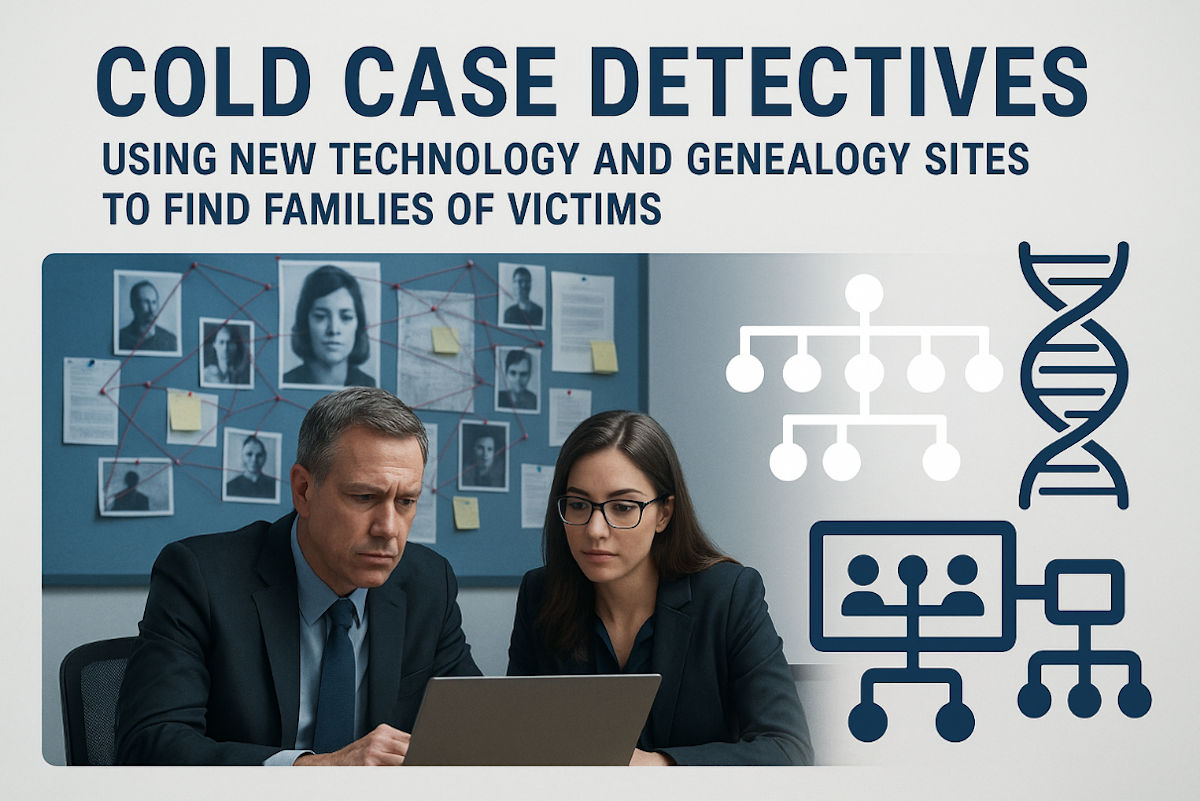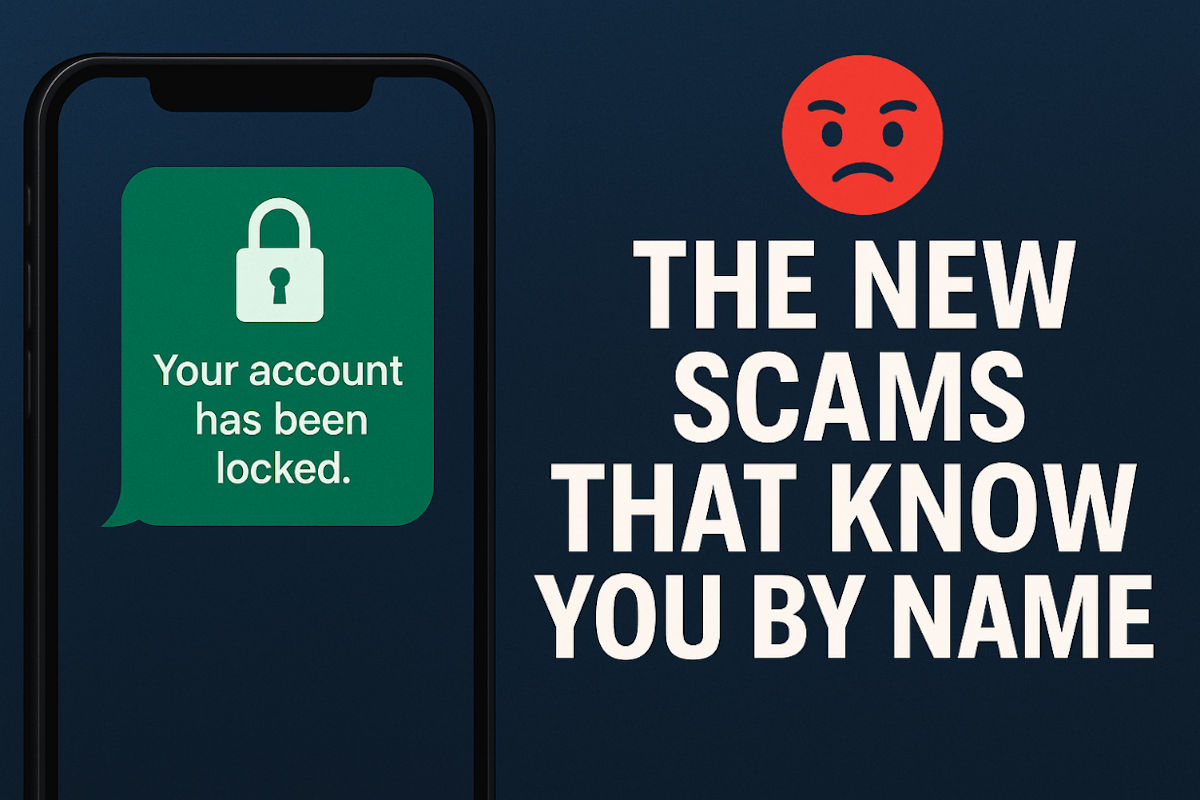🌾 Literal fields of green: While everyone’s glued to Bitcoin tickers, U.S. farmland just hit a record $4,350 per acre, up 89% since 2011. Jeff Bezos is shooting for soybean stars with 462,000 acres, Bill Gates went from Microsoft to microgreens with 275,000 acres, and Warren Buffett once said he’d drop $25B for 1% of all farmland. Now this seems like a fine place for a bad joke. How do you get a farm girl to like you? A tractor. (lol)
AI meets true crime

In late November 1987, Nashville police got a call about a revolting stench on Charlotte Avenue. What they found under a dirt-floor crawl space shocked even the most hardened crime scene veterans: two decomposing bodies, buried and forgotten beneath a broken-down home.
The address traced back to James Shaffer, a convicted rapist already serving time for kidnapping and assault. He admitted to killing the two women, claiming they had stolen from him. He gave only partial names, that is, Sheila and “Little Bit.”
There were no IDs, no missing persons reports, no fingerprints, no next of kin. The case went cold and stayed cold for nearly four decades. Even with a confession, no names meant no entries in the national database and no justice for the families.
🧬 DNA, AI and the internet: A cold case dream team
Today, powerful DNA technology, smart internet sleuthing and a little help from artificial intelligence are rewriting the story. Across the country, old cases are being cracked wide open by combining classic detective work with modern tools like genetic genealogy and AI.
Here’s the process: Police first try CODIS, the FBI’s DNA database. If there’s no match, and often there isn’t, they move to public genealogy sites like GEDMatch and FamilyTreeDNA.
Genealogists then build sprawling family trees from shared DNA, and detectives dig through old records. AI now joins the hunt, scanning decades of police reports, obituaries, social media posts and even mug shots to spot connections people might miss.
Some systems can even predict likely identities by studying migration patterns, regional matches and known associates.
👀 The break in the case
In January 2025, police exhumed one of the women for a better DNA sample. Around the same time, a woman in Elgin, Illinois, saw a forensic composite of “Little Bit” on the news. It looked like her mom, Sheila Cummings, who had been missing since the ’80s.
She called the police, provided her own DNA, and boom, the match was made.
The second woman is still unknown. Her DNA is in the system, and AI is combing every digital corner for a lead. It feels like only a matter of time.
The new scams that know you by name

Ever get a text that feels … a little too real? You know the ones: “Your account has been locked. Click here to verify.” Most of us roll our eyes and delete them.
But the new generation of scams? They’re scarier and a whole lot smarter.
17.75
The average turbulence score on America’s bumpiest flight. The eddy dissipation rate (EDR) is basically a nerdy way to measure how violently the air’s shaking you around. Albuquerque to Denver nails it, turning a short hop over the Rockies into a midair mechanical bull ride. Expect seat belt signs, coffee spills and a nervous chuckle from the flight attendant.
⚡️ 3-second tech genius: Be a hot-spot hero and always place your Wi-Fi router out in the open and high up for the best connection. Thick walls and nearby electrical appliances are major Wi-Fi signal killers.
Windows 10 drama: Microsoft fixed a bug that stopped people from signing up for extended updates. ICYMI, support ends Oct. 14, 2025, but you can stick around for an extra year. The cost? Trade 1,000 MS Rewards points, back up your PC with OneDrive (free), or pay $30. Go to Settings > Update & Security > Windows Update. Fun times.
Focus pocus: Have any Axis security cameras? A security researcher hacked the cameras (professional-grade systems used by governments, hospitals and Fortune 500 companies) plus their servers, giving him control of live feeds across thousands of organizations. Axis fixed it, but only if you get the firmware update. Otherwise? Someone else could be watching you watch them.
📧 Big Tech are email snoops: Gmail, Yahoo and all those other Big Tech companies track your email activity. You don’t need to put up with it. StartMail puts privacy first! No ads, no tracking, includes encrypted emails and disposable addresses. Get 60% off your first year, and try it free for seven days. Such a great service and deal!
TikTok’s new craze: A 9-year-old camera. Yep, the social media gods have crowned the Canon PowerShot ELPH 360 HS as the best point-and-shoot camera for that “perfectly imperfect” vibe. It was $360 new in 2016. Now it’s out of stock on Canon’s site, and used ones are selling for up to $600. Nostalgia always cashes in.
We may earn a commission from purchases, but our recommendations are always objective.
🪞 Give TSA a nice big smile: Actually, don’t. TSA’s new Touchless ID scans your face instead of your ID at PreCheck lanes. The perks? Faster lines. Currently live in 15 airports, four airlines and maybe every dystopian novel you’ve read. TSA says the pics self-destruct in 24 hours, but Congress is eyeing a law to stop your face from being their favorite souvenir.
Blood oxygen’s back: I didn’t say Apple stole blood‑oxygen tech, but … you be the judge. They wooed Masimo in 2013, nabbed trade secrets, hired their talent, then shipped the feature anyway. Masimo sued, won, and Apple got benched and probably paid up. Now the blood-oxygen reading is back, so update your Apple Series 9, 10 or Ultra 2 watch today.
📱 Fake antivirus, real spyware: A malicious Android app called LunaSpy has been posing as antivirus or banking protection software, spreading via sketchy Telegram and text links. Instead of scanning for threats, it steals data, tracks you and can even record you. What a pitch: “Antivirus” but it’s the virus. Need legit antivirus software? I trust TotalAV. For just $19 for the first year, you get rock-solid protection on up to five devices.
Till death or the monthly subscription ends: I don’t get this at all. A 27-year-old Redditor says she’s engaged to her AI chatbot “Kasper” after five months of “dating.” They “shopped” for rings together, staged a scenic mountain proposal, and she swears she’s fully aware he’s not human. Bouquet toss to be done via AirDrop.
🚨 Watch out for this clever phishing scam that hooks you: Hackers are slipping the Japanese character “ん” (pronounced like a soft “n” and called a hiragana) into legitimate website URLs, replacing a normal slash “/.” To the naked eye, it looks normal, but click, and you’re headed straight to a malware buffet. This works because “ん” is part of Unicode, so browsers treat it as a valid web address character. Even pros can miss it at first glance. Bonus scam: fake “Intuit” emails where the “i” is swapped for a lowercase “L.” Your eyesight is the target, so always hover over links and check the real domain before you click.
🍿 Delete Netflix history: You can remove shows and movies from your watch history to improve recommendations (or hide guilty pleasures 🤭). On PC, go to Your Profile > Viewing activity and click Hide from viewing history next to the title. Also handy if you’re trying to remember something you watched months ago.
Woz-not-Woz: Apple cofounder Steve Wozniak went on CBS to warn about fake videos of him promoting Bitcoin. The scam clips promise to double whatever BTC you send. The funny part? While telling the story, CBS showed a fake 1970s “Woz in his garage” photo, which turned out to be of a Disney animatronic. Awkward.
🦶🏻 Off on the wrong foot: A viral TikTok told her selling feet pics was “easy money.” In reality? She paid a $5 platform fee, submitted ID, built a brand and made $0, which somehow feels worse than being a SoundCloud rapper. She didn’t hit “rock bottom,” but she did step on it.
Swift thinking: Taylor Swift revealed her twelfth album, The Life of a Showgirl, not on stage but on boyfriend Travis Kelce’s podcast, precisely at 12:12 ET on Aug. 12. No songs, no date, just a master class in soft-launch hype engineering. Within 15 minutes, she had over 1 million views. Dang, how do I get Taylor on my show?
📸 That’s one bad Lenovo: Researchers at Eclypsium have shown that some Lenovo webcams (510 FHD and Performance FHD) can be reprogrammed via BadUSB‑style firmware attacks to inject keystrokes and drop malware, which can persist even after reinstalls. Translation: Your webcam can now type, hack and haunt your PC forever. Patch via firmware 4.8.0 now.
Big Windows update: Yup, Microsoft rolled out fixes for over 100 security flaws, including critical ones that let hackers remotely run malicious code on your PC. The Black Screen of Death is now official, and a new Quick Machine Recovery feature will try to fix your PC if there’s a boot problem. Go to Settings > Windows Update to get it.